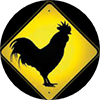It may take a while for the General Assembly to get behind sports gambling, but several state lawmakers are drafting legislation to let Virginians get in on the action.
Sen. Chap Petersen, D-Fairfax City, announced Tuesday that he’ll file a bill to legalize betting on professional sports, create a state authority to regulate the activity and direct tax revenue toward reducing tuition at Virginia community colleges.
“It recognizes the reality that sports gambling is pretty much a reality,” Petersen said in an interview. “We’ve already done daily fantasy and that’s widespread. This is just sort of taking it to the next level where a number of states are already going.”
Del. Mark Sickles, D-Fairfax, rolled out a second sports betting proposal Tuesday, projecting it could bring Virginia $41 million in annual tax revenue. Sickles proposed directing that money to “major research projects” at Virginia universities.
In May, the U.S. Supreme Court issued a ruling that gave states the freedom to legalize and regulate sports betting. Sports gambling was previously limited to Nevada, but it’s now sanctioned in six states and several others are considering similar legislation.
Petersen’s bill wouldn’t allow betting on college sports. That might frustrate some Virginia Tech or University of Virginia fans, Petersen said, but they should look on the bright side.
“I’m probably saving them money in the long run,” he said.
With Republicans holding slim majorities in the House of Delegates and the state Senate, sports betting could face significant opposition from family-values conservatives who see gambling more as a social ill than a revenue source. But Gov. Ralph Northam has said he’s open to the idea of allowing casino-style gambling, and several lawmakers have said Virginia shouldn’t leave money on the table by forcing its residents to visit other states to gamble.
The office of House Speaker Kirk Cox, R-Colonial Heights, declined comment.
Petersen said he wouldn’t be surprised if it takes a few legislative sessions for a sports gambling bill to pass, but he predicted it will be legal in all 50 states within five years.
“My goal is just to get this concept out there,” Petersen said.
A key question for supportive policymakers is figuring out where sports gambling should go.
A Chicago-based company that bought Colonial Downs earlier this year is in the process of renovating the New Kent County horse racing track and setting up a new system of off-track betting sites that will feature slots-like historical horse racing machines.
The General Assembly is also expected to take up separate legislation to allow a casino resort in Bristol, an economically struggling city in Southwest Virginia.
Petersen said his bill wouldn’t require a casino for sports gambling, but established tracks like Colonial Downs could “do it automatically” and have it at off-track betting sites. But localities would be free to license any sports betting establishment as long as the city or county governing body passes an ordinance and has it approved through a voter referendum.
The Virginia Lottery has also expressed interest in taking charge of sports betting if it’s legalized.
Petersen said he wants sports betting kept separate, but other lawmakers want the Lottery involved.
Sickles said his bill, which calls for a 15 percent tax on sports wagering revenue, would put the activity under the Lottery’s purview, which he said would “provide the assurance of a trusted brand while allowing the private sector to flourish.” Sickles’ legislation would also prohibit betting on college sports and would allow casinos to seek a separate license to have sports betting.
“This legislation provides a framework for an open, transparent and responsible market for legal sports betting,” Sickles said.
Del. Marcus Simon, D-Fairfax, who sponsored legislation in 2016 to legalize daily fantasy sports games in Virginia, said he’s open to the idea of allowing apps and websites that will let players gamble from anywhere.
“I think that’s the way most people want to do it these days,” said Simon, who is in the early stages of crafting his own sports betting bill.
Petersen took a different tack.
“I’m not interested in people sitting in their parents’ basement with their pajamas on betting on a Monday Night Football game,” Petersen said. “I want this to be part of a social entertainment package where people get out and spend money.”
This article is a reprint from The Daily Progress. Read the original.







